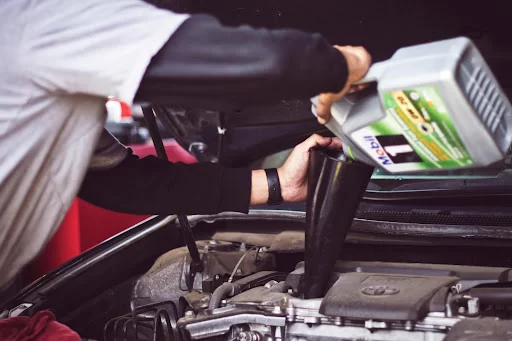How Cars & Trucks Scream to Get Fixed Now
How do vehicles speak to let their owners know that engines and other components need immediate attention? There are many ways cars and trucks convey that message, and not all of them include loud backfiring pops or funny smells. In fact, for anyone who owns or oversees a commercial fleet, the cries for help might be nothing more than excessive noise during idling.
In other cases, drivers know there’s something wrong with a vehicle when MPG drops mysteriously, or maintenance expenses suddenly rise for no apparent reason. Fortunately, there are a handful of very obvious signs that it’s time to head to the repair shop. Odd odors can be a sign of serious trouble, as can squealing brakes, uneven acceleration, and other weird engine behaviors. The following are among the most frequent signs, signals, and bad omens when it comes to the health of a truck or car engine. It pays to be on the lookout for them, particularly if you operate a large fleet.
Unusual Idling Noise
In your personal life you can tell the difference between being sad and being depressed, the signs are different. The same goes for the noises in your vehicle. Every driver knows what normal idling sounds like. It’s important to actively listen for out-of-the-ordinary noises whenever the engine is on, but the vehicle is not in motion. Pops, whistles, hums, and any type of dull, scratching sounds are a reason for extra attention. Never assume that you can accurately interpret a specific symptom. Instead, head to a licensed mechanic and have them correctly diagnose the causes behind unusual behavior, particularly odd sounds, when the engine is in an idle state.
Low MPG & High Maintenance Costs for Commercial Fleets
Managers of commercial truck fleets need to keep a close eye on how much time each one of their trucks spends idling. Too much idle engine time can lead to poor mileage and excessive repair expenses. Fleet supervisors are responsible for on-time deliveries, driver safety, vehicle condition, routing, and much more. They must be keenly aware of how often each truck is idling, which means the engine is on but the vehicle is not moving or in use.
By necessity, there’s always a small amount of time that every engine idles during regular operations, but too much can lead to all sorts of detrimental effects, including the need for extra maintenance, emission of noxious fumes, and unnecessary consumption of fuel. Low MPG and higher-than-average maintenance bills are a sure sign to fleet managers that there’s something wrong. Anyone who oversees transport fleets needs to acquire a solid understanding of why idling is so costly and can even put owners at risk of breaking anti-idling regulations and laws. It’s also imperative for managers to learn about the latest technology that can help drivers minimize the amount of time their truck engines idle.
Odd Odors
Weird odors are always a bad omen for vehicle owners. Typically, but not always, they come from some part of the fuel line and can mean there’s a leak or improper uptake at a crucial place in the motor or elsewhere. The rule for bad smells that emanate from any part of the car or truck is to get it checked out pronto. While the cost to repair these kinds of problems is not always sky-high, the situation is basically a gamble, so the sooner you get help, the better.
Warning Lights
CES, or check engine soon lights and other dashboard warnings are obvious indications that it’s time for a trip to the mechanic’s shop. Keep in mind that dashboard warning systems frequently don’t catch serious problems or flash a warning that is inaccurate. But the mere fact that any light is in the on position means there’s almost certainly something that needs immediate attention. Never ignore a warning light, no matter how unimportant it seems.
Brakes, Steering, and Acceleration
While squealing brakes are probably the classic symptom of car trouble, it’s essential to know that many faulty brake connections and similarly dangerous conditions make no noise at all. Get professional assistance at the first sign of brakes that not only squeak or squeal but also seem unresponsive in any way. Likewise, visit the shop as soon as you notice acceleration that is anything but smooth. Do the same for steering that feels as if it catches or doesn’t have the ability to perform a full rotation without a sticky feel to the movement of the steering wheel.



